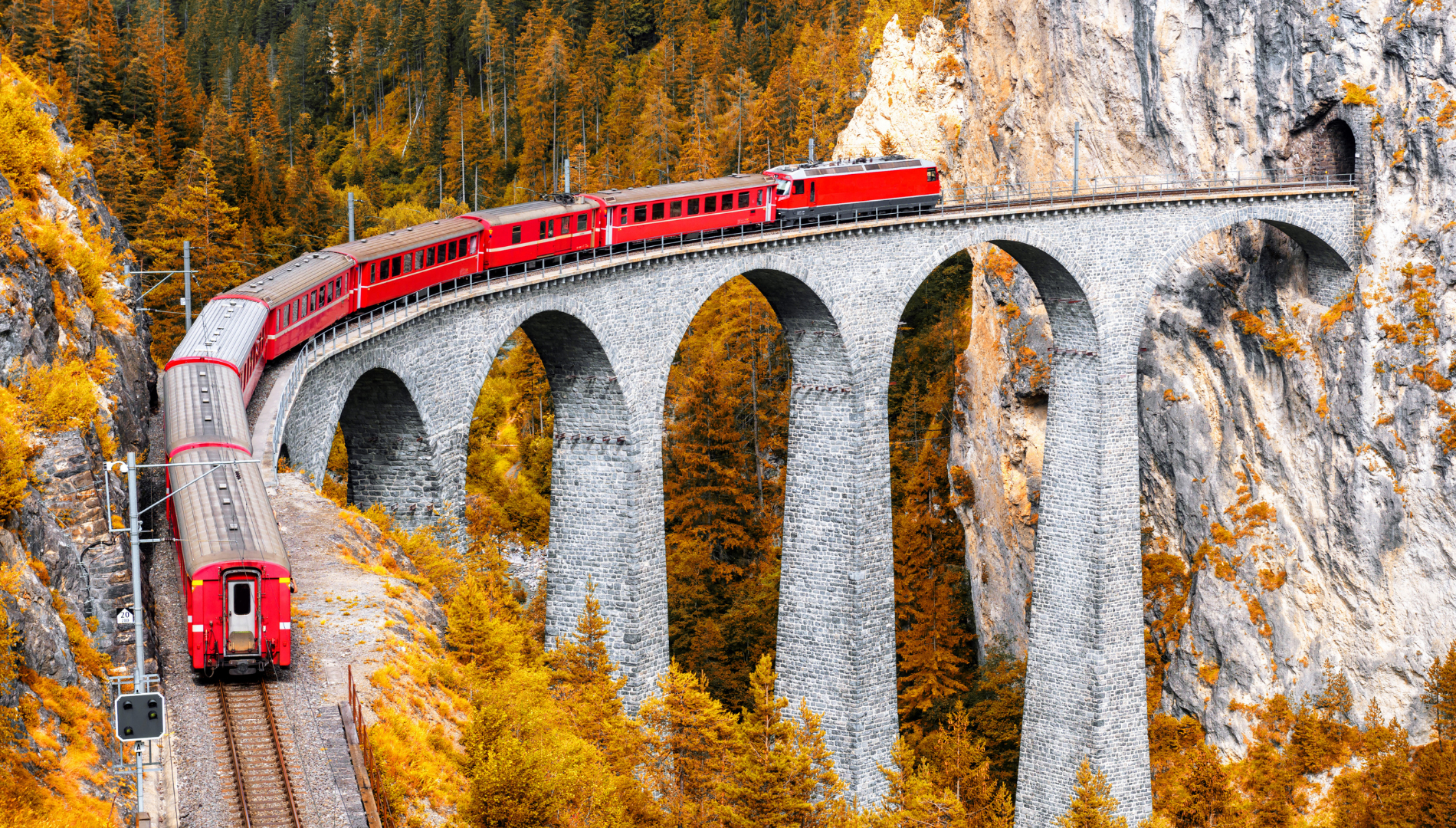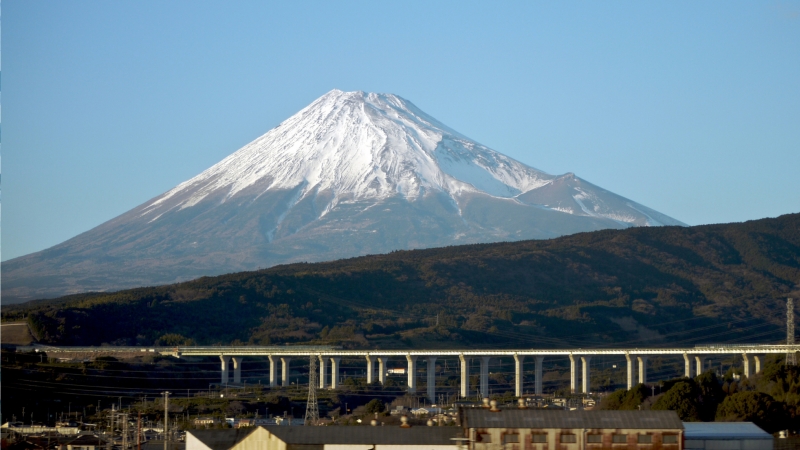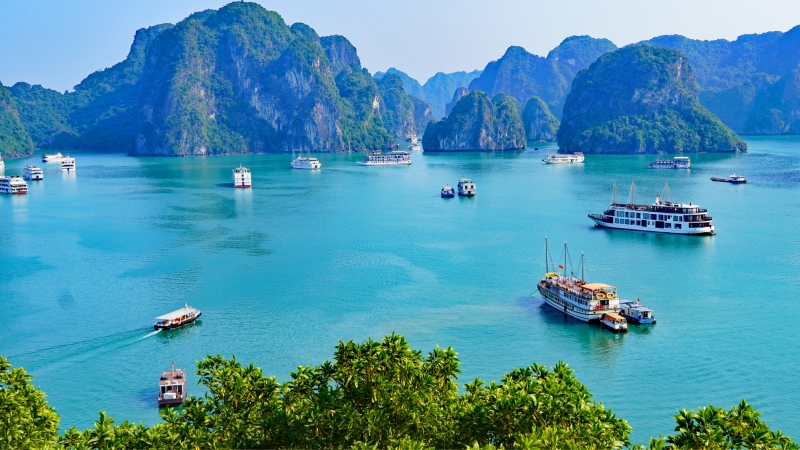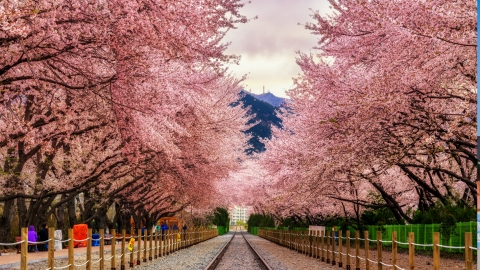With an average speed of only 36 km/hour, the 290 km journey takes up to 8 hours – far slower than a car. However, this is precisely what creates its special appeal, causing many tourists to wait 3-6 months to secure a seat on this train.
Slower than a car.
Unlike typical European express trains known for their speed, the Glacier Express focuses on tourism. Its journey isn't designed to shorten travel time from point A to point B, but rather to allow passengers to fully enjoy the stunning scenery of the Alps.
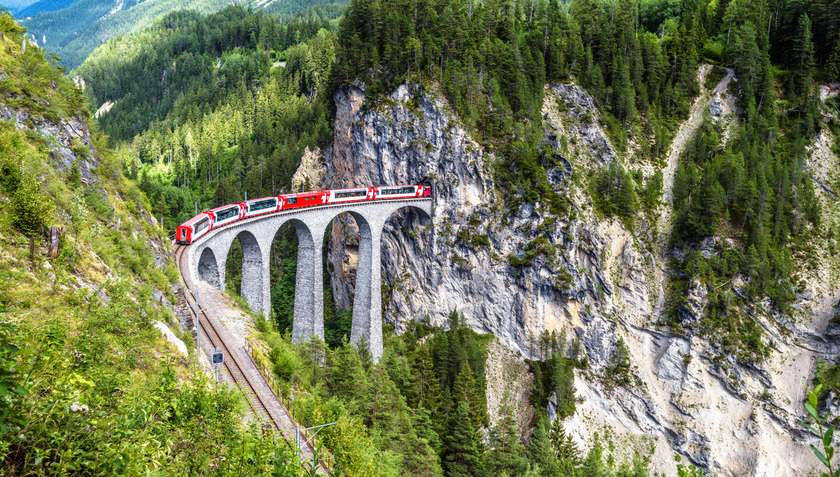
The world's slowest express train takes 8 hours to travel nearly 300 km.
Connecting the mountain resorts of Zermatt and St. Moritz in Switzerland, the Glacier Express train was not designed to get from point A to point B in the shortest time possible, but rather was created with a different purpose: to serve tourists.
By design, the Glacier Express train will feature large panoramic windows designed to provide expansive views, allowing passengers to fully immerse themselves in the breathtaking beauty of the snow-capped Swiss Alps. However, the train's slow speed is not only for sightseeing purposes but also to cope with the challenging terrain conditions of the region.
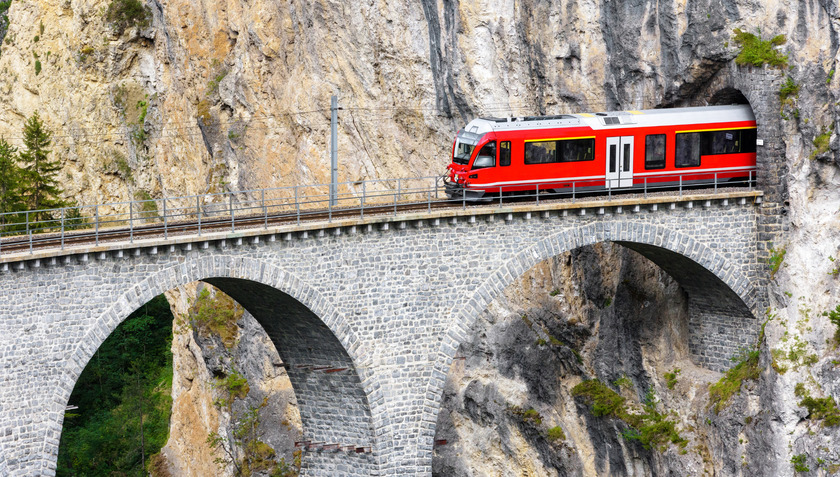
The Glacier Express – dubbed the "world's slowest express train" – is one of the most unique and captivating trains on the planet.
From Zermatt, the train descends into the Mattertal Valley to reach the summit of Visp (658 m), then runs to Brig (670 m), home to the Aletsch Glacier, a UNESCO World Heritage site since 2001. Afterward, the Glacier Express climbs up to Andermatt (1,435 m), running on a cogwheel track to cross the Oberalpass (2,033 m), and finally to Dissentis, a town heavily influenced by Roman culture and architecture. The Glacier Express's final destination is St. Moritz, a mountain resort known for its hot springs and numerous other attractions.
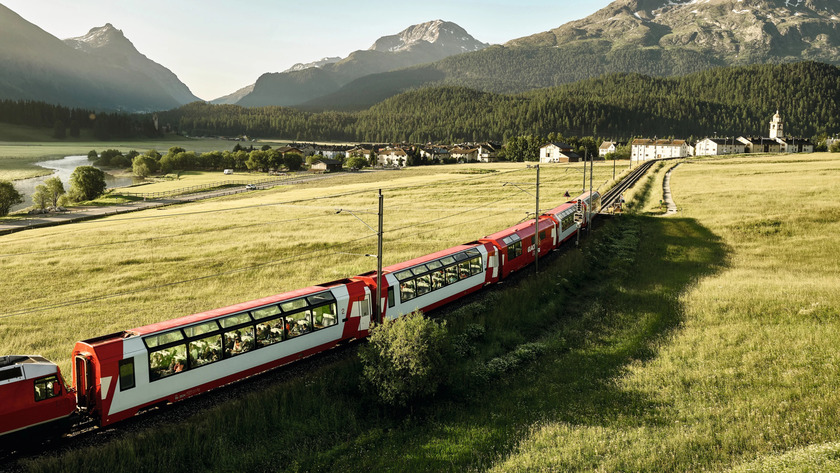
This train is likened to a "mobile hotel," offering travelers a fantastic experience while admiring the majestic mountain scenery.
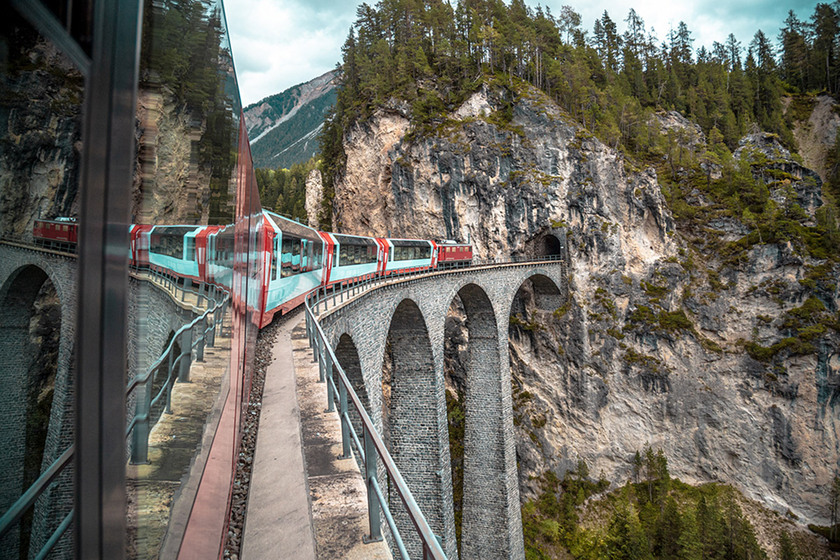
Throughout the journey, travelers will be able to admire stunning natural scenery, from vibrant flower fields to snow-capped mountain peaks.
Experts reveal that traveling through the Alps requires the train to navigate some of the most challenging terrain on the European continent, featuring steep slopes and numerous sharp turns. The journey passes over towering bridges, steep inclines, and countless hairpin bends. During its 8-hour journey, the train crosses 291 bridges and 91 tunnels, and ascends to an altitude of over 2,000 meters above sea level. Because of these challenging terrain, the Glacier Express must maintain a slow speed to ensure passenger safety and comfort.
It took six months to buy a train ticket.
Serving as a scenic train for tourists in the Alps since 1930, the Glacier Express consists of six first-class and second-class carriages and one dining car. The carriages are nearly 3 meters high with large panoramic ceilings and windows, offering unobstructed views, allowing passengers to easily admire the majestic scenery of the Alps. The altitude, the winding mountain ranges, the lush green valleys, and the crystal-clear lakes unfold before your eyes, creating a breathtaking natural landscape unlike anywhere else.
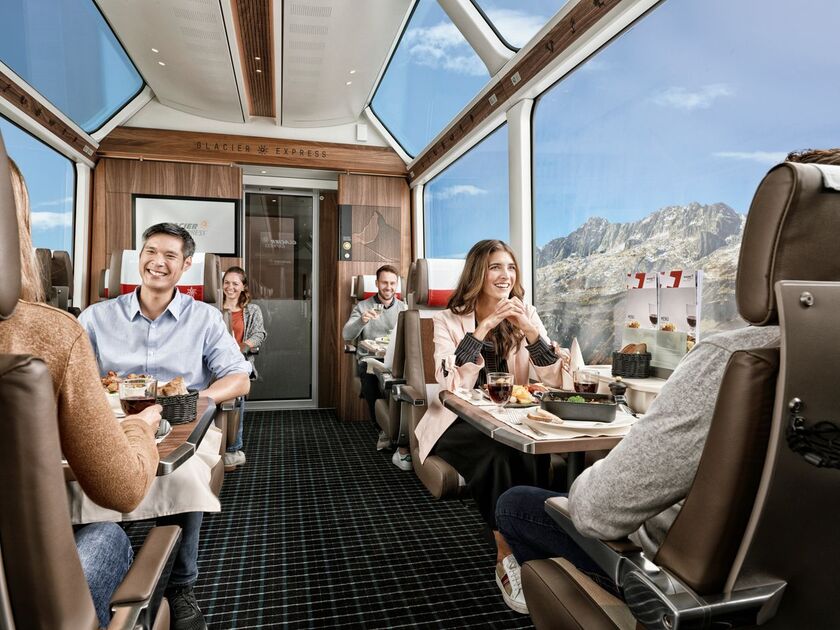
The train is fully equipped with first-class and second-class compartments, offering spacious and comfortable seating for passengers.
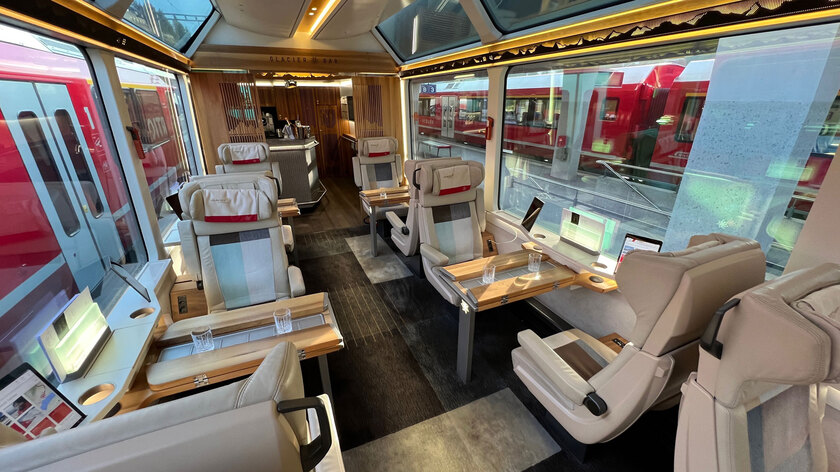
Despite its slow speed and long journey time, the Glacier Express attracts a large number of tourists. To secure a ticket on this train, passengers typically need to book 3-6 months in advance, and the waiting time can be even longer for premium classes such as Excellence, First Class, or Second Class. These classes are not only spacious and comfortable but also offer high-end service, providing a five-star travel experience amidst the majestic mountain scenery.
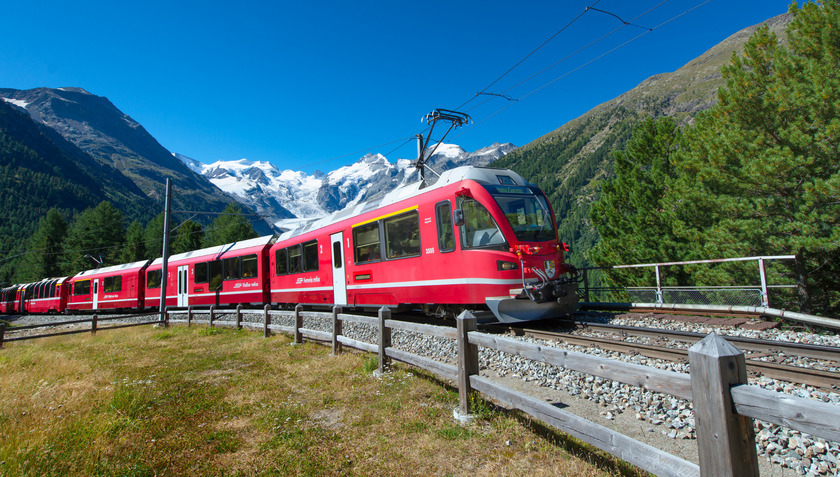
This is a major plus, making the trip not just a journey but also a memorable culinary experience.
Besides the stunning scenery, the cuisine on the Glacier Express is also a highlight of the trip. All food on board is prepared fresh and served on the spot, offering passengers a relaxing experience while enjoying traditional specialties and admiring the natural landscape. Furthermore, to enhance the culinary experience, passengers can choose from a selection of premium drinks from the renowned Graubünden and Valais regions...
First-class tickets can cost up to $529 per person (approximately 13 million VND). Standard Glacier Express Classic tickets are priced at around $179 per adult (approximately 4.4 million VND), with a 50% discount for children aged 6-16.

 VI
VI EN
EN



